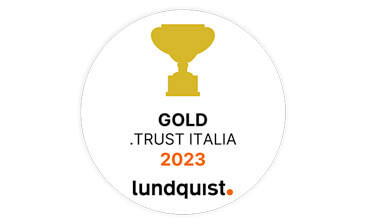
Acea for World Energy Saving Day
The class action raised by customers is rejected and the plaintiffs must also repay the expenses
All the claims submitted were declared atypical or unfounded and therefore inadmissible
Inadmissible, unfounded or unsubstantiated arguments. The 10th civil section of the Court of Rome, specialized in market law, has rejected the class action raised against Acea Ato 5 by 282 customers who had protested against a series of breaches regarding transparency, the unfairness of certain contractual clauses and the unlawfulness of the applied tariff system, claiming compensation for the alleged damages suffered as a result.
The Court rejected the action raised by the customers and ordered them collectively to pay the costs of the court case and legal expenses for a total of approximately €10,000.
The Court had first reminded the plaintiffs of the limits and specific conditions of the class action, clarifying that it can only be raised for the purpose of claiming compensation or restitution. Therefore, the company’s liability for the unlawfulness of specific behavior or for the unfair nature of specific contractual clauses can only be investigated during a class action as a incidental question, that is, based on claims for damage compensation and restitution.
Based on these premises, the judges deemed all the claims formulated as atypical of the action raised; additionally, with regard to the alleged unfairness of certain contractual clauses, the judges observed that these concerned hypothetical cases that might not ever even occur.
Likewise, the Court deemed that the request for compensation forwarded was based on reported breaches not referring to specific, effective financial damages, and so considered it as a mere punitive claim for compensation, which is not admissible in this type of proceeding.
Regarding the complaints about the envisaged lack of information about the tariff variations which, for the plaintiffs would have precluded them from negotiating the contractual conditions, the judges noted that this point was clearly unsubstantiated given that Acea Ato 5 operates as a public service Provider in a monopoly, and that therefore the user has no possibility of negotiating the contractual conditions and the tariffs at which the service is provided.
The arguments submitted for the purpose of claiming back the amounts received since 2013, in the envisaged application in the bill of the so-called “minimum commitment” were also rejected. In fact, for the judges, there was no evidence to confirm that the plaintiffs, or at least some of them, clearly identified, had not entirely consumed the quantity of water corresponding to the “minimum commitment”. Because only in such a case could it have been claimed that the disputed criterion of the tariff had led to charges for higher presumed consumptions that those effectively used.
Discover the latest news and initiatives of the Acea Group

Acea for World Energy Saving Day

Visit the virtual museum about the history of the Acea Group

The channel for the commercial requests on land urbanisation

Acea turns the spotlight on the Rome Film Festival 2023

Acea is in the "Gold class" in the .trust research

Read more about our culture of inclusiveness